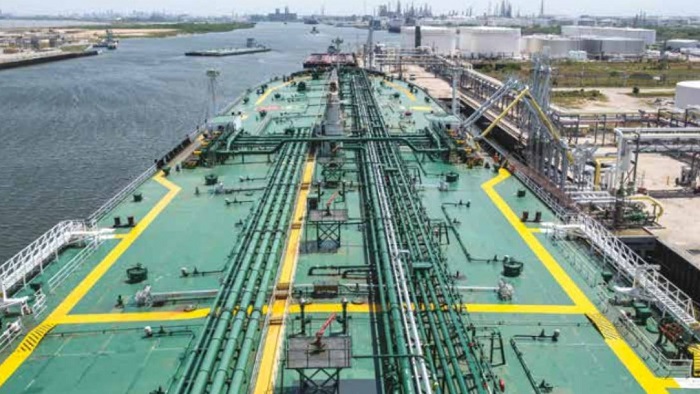Trafigura's U.S. Crude Exports Account for Over a Quarter of U.S. Total
SINGAPORE (Reuters) — Commodity trader Trafigura's exports of U.S. crude now account for over a quarter of the country's total since the new Cactus II pipeline started last month, the company's co-head of oil said, making the firm the single biggest exporter.
"We touch in excess of 1.5 million barrels per day (bpd) of physical U.S. crude, out of that we export around 500,000 bpd. The rest is domestic," Ben Luckock told Reuters on the sidelines of the annual Asia Pacific Petroleum Conference (APPEC) in Singapore.
Trafigura signed a long-term agreement with Cactus pipeline operator Plains All American Pipeline LP last year to transport a total of 300,000 barrels per day (bpd) of crude and condensate.
It is the first of three large pipelines expected to start up this year from the Permian Basin, the biggest in the United States, and is expected to alleviate a bottleneck that had depressed regional prices for more than a year.
The Geneva-based trading firm expects total U.S. crude exports to hit 3.5 million bpd by the end of this year as other pipelines ramp up though port infrastructure still lags.
U.S. crude oil exports averaged 2.69 million barrels per day (bpd) in July, data from the U.S. Census Bureau showed, not including re-exported foreign crude.
Several major port expansion proposals are pending approval. Trafigura has also proposed to build a new loading terminal at Corpus Christi in Texas capable of loading very large crude carriers.
Great Arbitrage
Luckock said that the volume is being sold spot for now though there were many people who wanted to buy long-term supplies.
"China has been a big swing buyer. There’s plenty of people that want to term barrels up but at the moment we’re selling to about 20-30 customers," Luckock said referring to the impact of the U.S.-China trade war.
"It’s one of the great arbitrage barrels. We have tripled our buyers in the last year."
Last week, the trading arm of China's Sinopec began reselling some of the crude oil it imports from the United States to buyers in India and South Korea to avoid tariffs Beijing imposed in its trade war with Washington.
"You don’t know what U.S. policy is going to be on a number of key topics. It seems to me that this trade war is going to be an extended affair," Luckock said.
Concerns over consistent quality have been an issue during the ramp up of U.S. crude production due to the myriad of logistics in getting the oil to the coast. Several cargoes were rejected in South Korea earlier this year and though consistency has improved, many buyers in Europe for instance remain wary of Houston terminals and Eagle Ford, preferring to take Midland.
Trafigura said it can control the stream from "wellhead-to-water", which creates strong demand for its oil.
Saad Rahim, Trafigura's chief economist, said European buyers accounted for just over a third of the firm's exports while Asia was seen taking close to 45% so far this year.
Related News
Related News

- Trump Aims to Revive 1,200-Mile Keystone XL Pipeline Despite Major Challenges
- Valero Considers All Options, Including Sale, for California Refineries Amid Regulatory Pressure
- ConocoPhillips Eyes Sale of $1 Billion Permian Assets Amid Marathon Acquisition
- ONEOK Agrees to Sell Interstate Gas Pipelines to DT Midstream for $1.2 Billion
- Energy Transfer Reaches FID on $2.7 Billion, 2.2 Bcf/d Permian Pipeline
- U.S. LNG Export Growth Faces Uncertainty as Trump’s Tariff Proposal Looms, Analysts Say
- Tullow Oil on Track to Deliver $600 Million Free Cash Flow Over Next 2 Years
- Energy Transfer Reaches FID on $2.7 Billion, 2.2 Bcf/d Permian Pipeline
- GOP Lawmakers Slam New York for Blocking $500 Million Pipeline Project
- Texas Oil Company Challenges $250 Million Insurance Collateral Demand for Pipeline, Offshore Operations





Comments